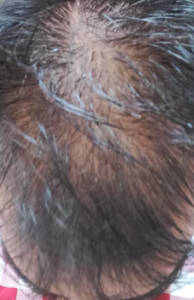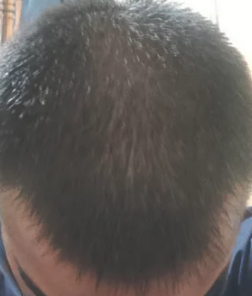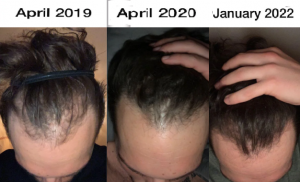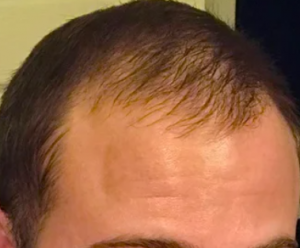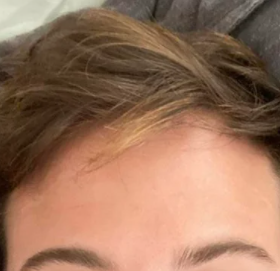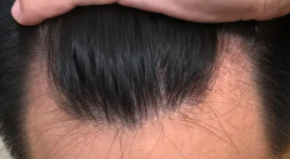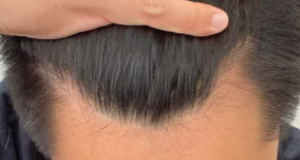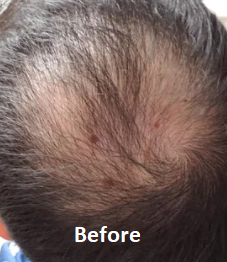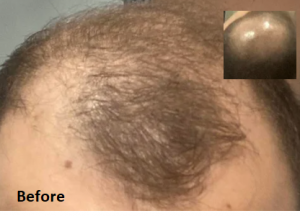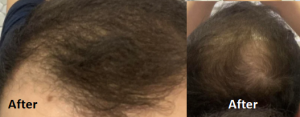Androgenic alopecia does not cause consistent hair loss. It is an up and down problem with hair loss often rapid and then slow.
What determines who is a responder and who is not? Is it the amount of sulfotransferases in the scalp or something else? I always assumed those who don’t respond to the topical version will respond to the oral because the liver has more of these enzymes which will convert the minoxidil to minoxidil sulfate.
There are tests that can tell you if you will respond to topical minoxidil. Minoxidil has to be converted to an active form by sulfotransferase enzymes that may or may not be present in sufficient quantities in hair roots. When the drug is taken orally, it is automatically converted to an active form so if it is taken orally, the response is much, much higher.
I read a lot about people having 2-3 HTs in their lifetime but always just assumed they had more than 1 because they weren’t on fin. Is this a safe assumption? I want to eventually have an FUE because I just don’t like my natural temporal points (fin and min havent fixed them yet, and they probably won’t) but I want to be done after just 1 because I’m on fin. Is this naïve or realistic?
Yes, for many reasons. For example:
-
you have very fine hair and the transplanted hair is too thin, more is needed,
-
You progress in your balding.
-
The surgeon did not cover enough of your bald head to address your needs in the first surgery
-
The transplant produced shock loss and you need more hair
Many hair transplant patients end up getting at least a second surgery sometime down the line
I just wanted to update you. We spoke on the phone in July about HCG. I really appreciate you taking the time
I had reached out to you about whether or not HCG was bad for hair after seeing your comments on a message board. Even though I only took it for 10 days and stopped on your advice – As you predicted it was very very bad for hair. It was Very damaging to my hairline after having been stable on finasteride and topical minoxidil for 12 years. This confirms what you had seen in practice so hopefully if others ask the same question you have more evidence to have them run from it. I Just added oral minoxidil 2.5 30 days ago from my dermatologist after seeing your posts on balding blog which give me hope it will return my hair to my pre HCG state.
Shedding has been pretty bad all over my scalp this past week. Noticeable hair fall and thinning. Have you had patients experience the same and end Up ahead?
I am sorry that you experienced the hair loss. Hopefully the oral minoxidil will help get your hair back
Doctor my face is becoming puffy and feels like it’s holding a lot more fluid than before after using minoxidil. Do you think that is min causing it
Yes, if you noticed after taking the minoxidil, it could be an allergy to it. I would advice you as I advised this man: https://baldingblog.com/am-i-allergic-to-minoxidil/
If I marry a women with genetic hair loss and I have it, will my children have it?
There is no way to predict hair loss in men at this time. If you have a child now, by the time he reaches puberty, there may be a test for balding by then.
Four months is too soon to judge the effectiveness of finasteride. You have to give it a year at least. Finasteride will almost always (90%) slow, stop or reverse genetic hair loss when it is used in men
So it started at 20 for me so does that mean it will be more severe than balding of a person who started at 30? Am I more likely to end up at NW7 at a young age? My uncle and grandpa on my mom’s side were completely bald by 30. I started getting temple recession when I was 21 (I was NW2)… I was losing a ton of hair in college. I’m 35 now and still about NW2 or NW2.5. I didn’t do any treatment until like 4 months ago when I started messing around with topical fin microdosing and min. I also haven’t seen any difference in my hair since starting these treatments 4 months ago. Just kind of stuck with mostly a full head of hair with no decline or progress almost 15 years later.
With a family history like you reported, the possibility that you will follow it reduces if you pass 30 without significant balding. Most Class 7 men develop that pattern or are heading to that pattern by the time they are 26 year old. At 33, it is now unlikely that you will follow your forbearers path.

